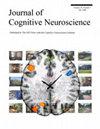Needing: An Active Inference Process for Physiological Motivation
IF 3.1
3区 医学
Q2 NEUROSCIENCES
引用次数: 0
Abstract
Need states are internal states that arise from deprivation of crucial biological stimuli. They direct motivation, independently of external learning. Despite their separate origin, they interact with reward processing systems that respond to external stimuli. This article aims to illuminate the functioning of the needing system through the lens of active inference, a framework for understanding brain and cognition. We propose that need states exert a pervasive influence on the organism, which in active inference terms translates to a “pervasive surprise”—a measure of the distance from the organism's preferred state. Crucially, we define needing as an active inference process that seeks to reduce this pervasive surprise. Through a series of simulations, we demonstrate that our proposal successfully captures key aspects of the phenomenology and neurobiology of needing. We show that as need states increase, the tendency to occupy preferred states strengthens, independently of external reward prediction. Furthermore, need states increase the precision of states (stimuli and actions) leading to preferred states, suggesting their ability to amplify the value of reward cues and rewards themselves. Collectively, our model and simulations provide valuable insights into the directional and underlying influence of need states, revealing how this influence amplifies the wanting or liking associated with relevant stimuli.需要:生理动机的主动推理过程。
需要状态是一种内部状态,是由于缺乏重要的生物刺激而产生的。它们引导动机,与外部学习无关。尽管它们的起源是独立的,但它们与对外部刺激做出反应的奖赏处理系统相互作用。本文旨在通过主动推理这一理解大脑和认知的框架来阐明需要系统的功能。我们提出,需求状态会对有机体产生无处不在的影响,用主动推理的术语来说就是 "无处不在的惊喜"--一种衡量有机体偏好状态距离的尺度。最重要的是,我们将 "需要 "定义为一种主动推理过程,旨在减少这种普遍存在的意外。通过一系列模拟,我们证明我们的建议成功地捕捉到了需求现象学和神经生物学的关键方面。我们证明,随着需要状态的增加,占据首选状态的倾向会加强,而与外部奖励预测无关。此外,需要状态会提高导致首选状态的状态(刺激和行动)的精确度,这表明它们有能力放大奖励线索和奖励本身的价值。总之,我们的模型和模拟对需要状态的方向性和潜在影响提供了有价值的见解,揭示了这种影响如何放大与相关刺激相关的想要或喜欢。
本文章由计算机程序翻译,如有差异,请以英文原文为准。
求助全文
约1分钟内获得全文
求助全文
来源期刊
CiteScore
5.30
自引率
3.10%
发文量
151
审稿时长
3-8 weeks
期刊介绍:
Journal of Cognitive Neuroscience investigates brain–behavior interaction and promotes lively interchange among the mind sciences.

 求助内容:
求助内容: 应助结果提醒方式:
应助结果提醒方式:


